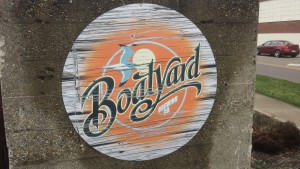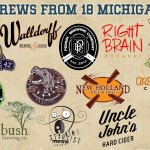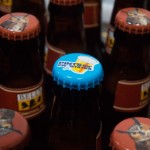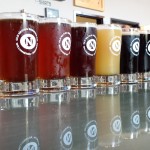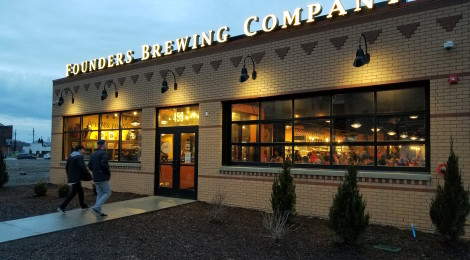
Michigan Beer 2019 – The 12 Biggest Stories
We have almost reached the end of 2019, a year which saw many ups and downs in the Michigan craft beer scene. While many breweries saw continued growth, others closed their doors for good or had to take steps to solidify their future by giving up some control of their operations. As far as beer goes, we saw the New England IPA remain popular with few signs of slowing down. Sours have now become part of the conversation at most breweries as well and we can’t help but wonder what style will be next to captivate Great Lakes State drinkers. For the first time since we started writing about beer we decided to take a look at some of the biggest beer stories of the year in our “Great Beer State” (in no particular order) – let us know if you think we missed anything! Below are what we saw as the 12 biggest Michigan Beer 2019 stories:
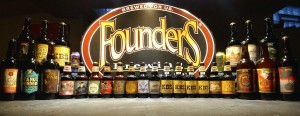
Founders sells 90 % to Mahou San Miguel – A shockwave rippled through the Michigan beer scene in August as the state’s biggest brewery announced its intent to sell majority ownership to Spain’s Mahou San Miguel. The Spanish group had previously purchased a 30% stake in Founders, and the deal is expected to lead to more international distribution for Founders beer as well as more capital for continued growth domestically. Reactions were mixed, with many worried that Founders had “sold out” and that the things they love about it would change. The owners said that nothing about day-to-day business will change, and only time will tell if that holds true. Little did we know at the time, this wouldn’t be the biggest news story involving Founders this year (see below).
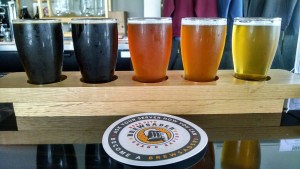
Michigan Beer continues increase amidst national decline – At a time when national beer production has dropped 12 % in the last decade, Michigan beer production has gone up 10% in the same time frame. Much credit is due to the continued growth of Founders and Bell’s Brewery, but some credit goes to each of the 350+ breweries in Michigan that have found a way to connect with their local neighbors and get them to spend money with the “little guy” rather than slamming a Budweiser or a Miller Lite.
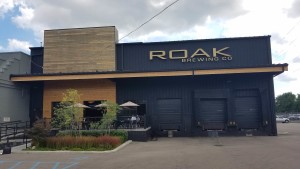
Dark Horse/ROAK merger – After several years of declining sales, Marshall’s Dark Horse Brewing needed to do something big to keep their doors open. In September it was announced that Royal Oak’s ROAK Brewing Co. had entered into an agreement to acquire Dark Horse, though they called it “more of a merger than a buyout.” The merger isn’t expected to change either company’s products and is looked at as a chance to consolidate resources and share sales employees to stay competitive in a tough market.
More breweries close their doors – 2019 has also been a year full of brewery closings. The biggest name on the list is Arcadia Brewing, which saw its Kalamazoo operation close in September. Arcadia was one of the first Michigan breweries to grow on a large scale, and its rapid decline and eventual closure were both pretty shocking. Other Kalamazoo breweries to shut their doors this year were Boatyard Brewing and Rupert’s Brew House. The Detroit area lost Cellarmen’s (Hazel Park) and Axle Brewing Co. (Ferndale) – although there has been a bit of good news regarding Axle’s former taproom. In Grand Rapids, The Hideout closed after a potential sale was negated by the landlord deciding to pursue other opportunities. Many are quick to point to the market being oversaturated, and while that may contribute in some instances there have been other factors at play in most of these closings.
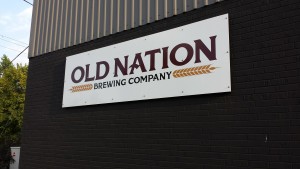
Big Lake Brewing Company and Old Nation Brewing Co. place in top 50 nationally for growth – When the Brewers Association list of the 50 fastest growing small and independent breweries in the country was released in March, two Michigan breweries found themselves on the list. Old Nation Brewing Co. (Williamston) was listed at 33rd, thanks to its rapid growth powered by popular New England style IPAs like M-43 and Boss Tweed. Big Lake Brewing Company (Holland) was listed at 43rd, after a huge bump in sales and distribution of beers like Lake Haze, Sparti Parti, Haze & Blue, and Leroy Brown.
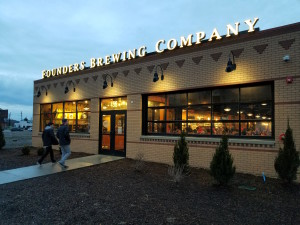
Founders lawsuit – There was no escaping this story as it took several unexpected turns. It was known last year that former employee Tracy Evans pursuing a racial discrimination lawsuit against Founders. In October a leaked transcript of Evans’ former boss’ deposition created a firestorm, as Dominic Ryan would not admit that Evans is black. Social media backlash followed, and Founders eventually pulled out of the MBG Detroit Fall Beer Festival. Then the Detroit taproom was closed indefinitely after “concerns for employee safety” and a planned employee protest. Bars and restaurants began pulling Founders’ beer from their taps and liquor stores stopped taking orders. Next came the resignation of diversity and inclusion director Graci Harkema, who left Founders with a scathing yet eloquently worded letter suggesting the problems ran deep and her efforts to help the company move forward had been ignored. Things took yet another twist at the end of October as Founders announced they had settled the lawsuit with Evans. Finally, plans to reopen the Detroit taproom were announced, with profits for the next three years being donated to Detroit community organizations and local charities. Time will tell how much this entire process has hurt Founders, but it seems safe to say it will take a lot more than words and promises to repair the public’s trust.

Michigan Brewers Guild changes festival schedule – Last month the Michigan Brewers Guild announced several changes to its festival schedule for 2020. The good: a new Spring Beer Festival is being added in May at Pit Spitters Park in Traverse City. The bad: the popular Winter Beer Festival in Grand Rapids and the Detroit Fall Beer Festival will no longer have Friday sessions and will be one day only events. We love the idea of a spring festival and Traverse City is a great choice, but losing a day from the only festival on the west side of the state really sucks.
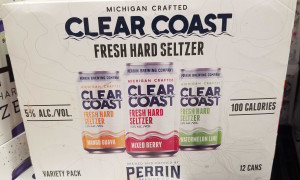
Hard Seltzer craze – The nationwide boom in sales of White Claw, Truly, and other hard seltzers got many craft breweries interested in trying their hand and the beverages as well. Perrin (Clear Coast), Atwater, Short’s (Beaches), and Ore Dock (Superior Coast) are just a few of the big names that have put cans into distribution. Many other breweries offer an in-house version, and with the craze showing no sign of slowing down look for many more to explore it as well in the next year.
We are extremely proud to announce that our Rye Hipster Brunch Stout won a gold medal this morning at the Great American Beer Festival in Denver! This is a massive honor for all of us here at Odd Side, and we thank all of you for your support! pic.twitter.com/axU4X3SbDp
— Odd Side Ales (@OddSideAles) October 5, 2019
GABF winners – Michigan breweries have frequently been well-represented on the winner’s list at the Great American Beer Festival in Colorado, and this year was no exception (though with only 4 breweries winning it was down year from nine in both 2017 and 2018). Award winners included Odd Side Ales’ Rye Hipster Brunch taking gold in the specialty beer category, Midland Brewing Company’s One Night in Bangkok Smoothie IPA taking silver in the herb/spice beer category, Royal Oak Brewery’s Jeremy Altbier winning bronze in the German altbier category, and River’s Edge Brewing Co.’s Milford Pub Ale taking bronze for ordinary or special bitter.
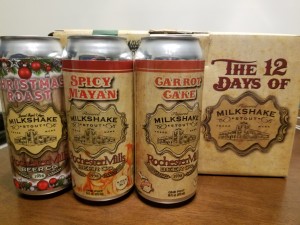
Rochester Mills sells to Two Roots – The other big acquisition news this year was that California’s Two Roots Brewing Co. was purchasing Rochester Mills Production Brewery (Auburn Hills). Rochester Mills, best known for their popular milkshake stouts, will still maintain the Rochester Mills Beer Co. brewpub and said they expect no changes to their product lineup or availability. Two Roots is looking to make the base non-alcoholic beer for their cannabis-infused beer at Rochester Mills, then ship it out to other facilities where the cannabis will be added later. Michigan residents can expect to see Two Roots beers in the state at some point in the near future.
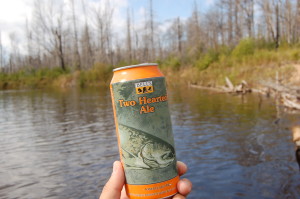
Bell’s big year for Two Hearted Ale – Not only did Bell’s Two Hearted once again receive the distinction of being named “Best Beer in America” by the American Homebrewers Association for a third consecutive year, the brewery also scored a big win by putting Double Two Hearted (11% ABV double IPA version of the original) into distribution. Plans were also announced for Light Hearted Ale, a session version of Two Hearted that will be released early next year – we can’t wait to try out this 3% ABV beer and add it to our “everyday drinker” rotation!
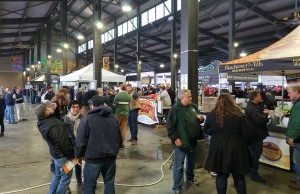
The Distribution Discussion – Detroit’s Eastern Market Brewing is leading the charge to attempt to change some of the Michigan laws relating to self-distribution (sign the online petition here). Under the current system, a brewery that produces more than 1,000 barrels per year is required to sign with a distributor. This can prove cost-prohibitive for many of the smaller breweries in the state since the distributor takes a chunk of the profits, and the suggestion has been to up the limit to 30,000 barrels – a number all but five of our Michigan breweries would fall under (read more in Crain’s Business Detroit). Change takes time, but at a minimum there is a discussion on the table and a voice for the smaller breweries as they fight to stay competitive while handling distribution on their own.

